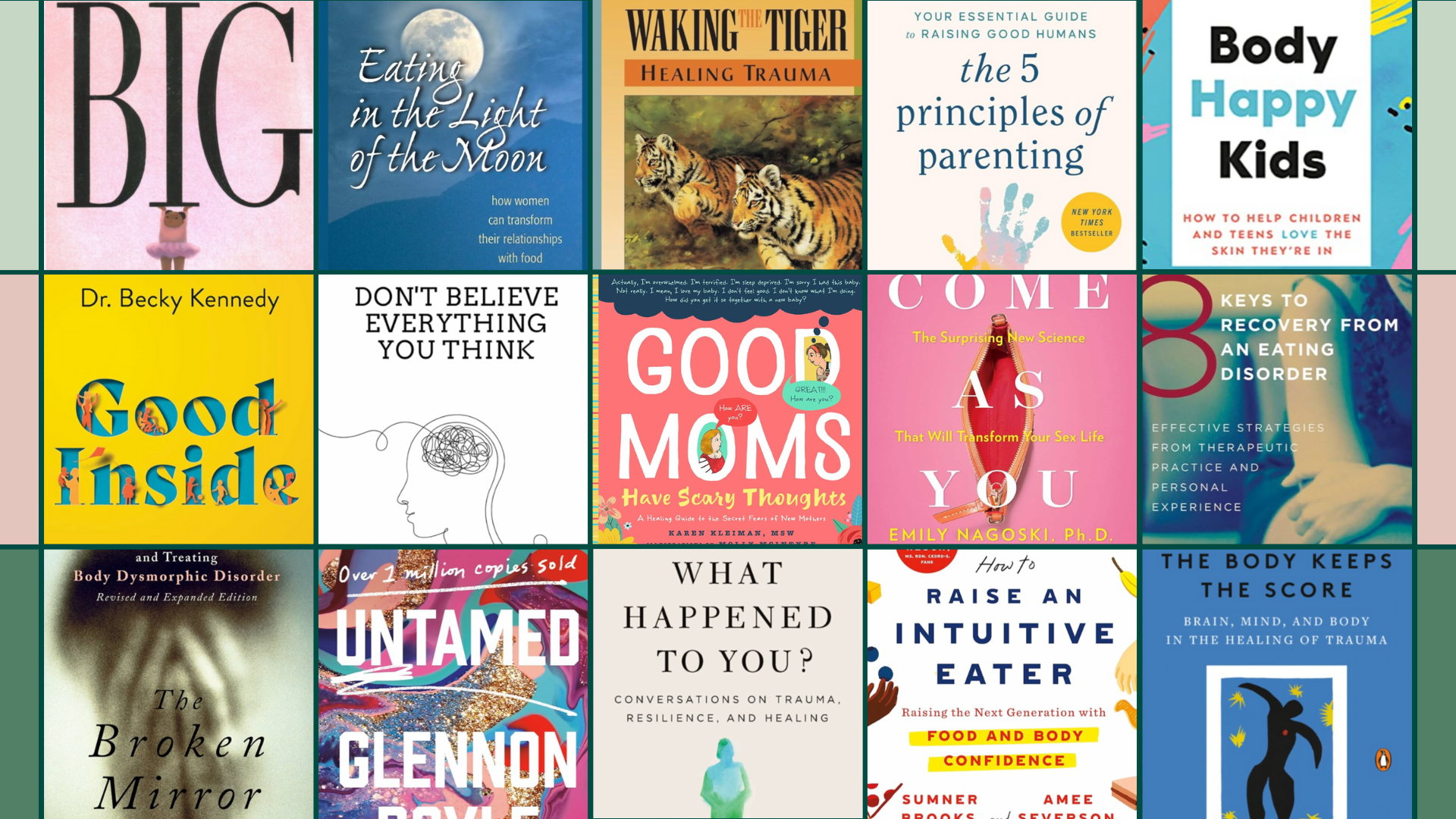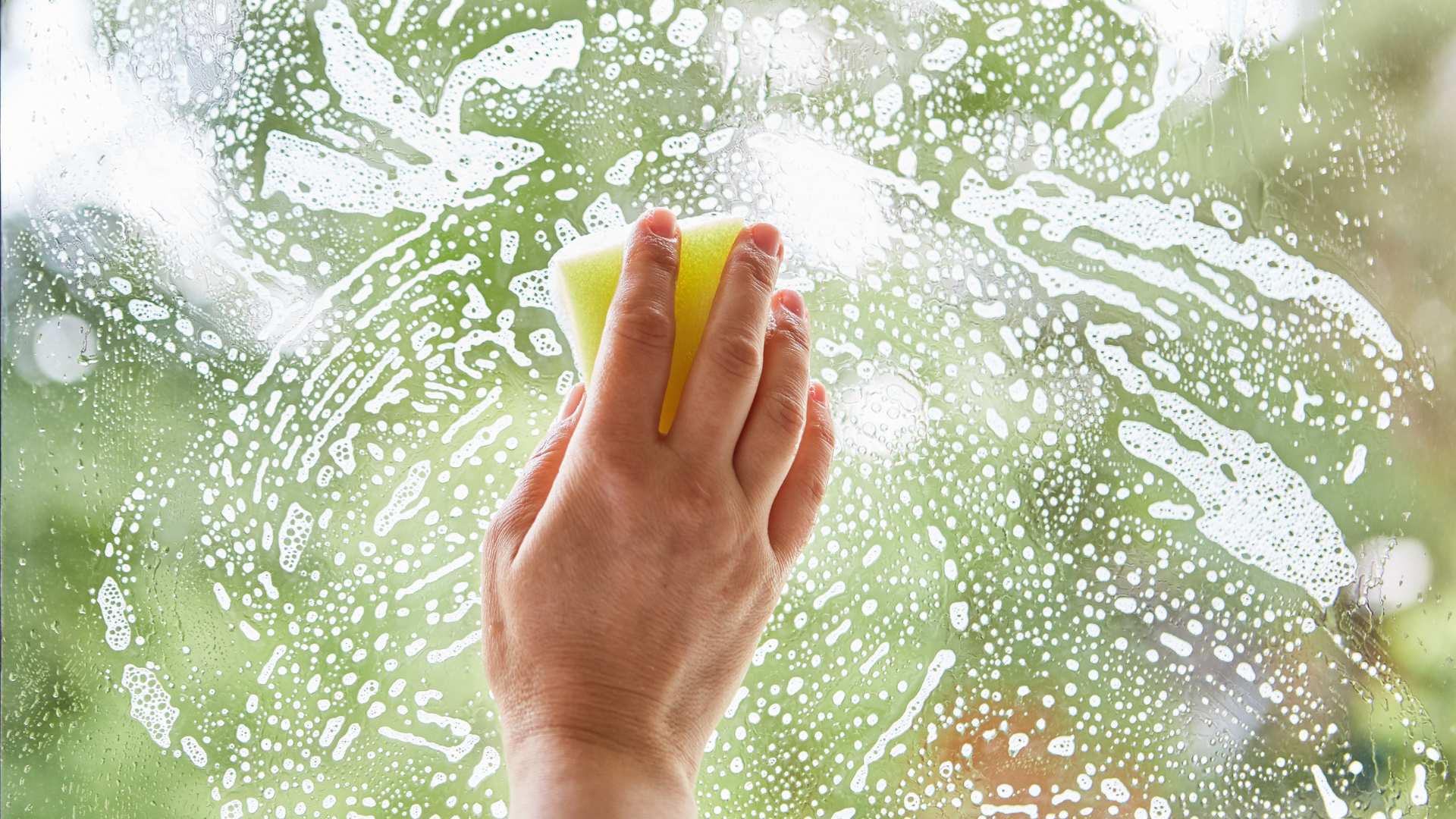15 Therapist-Approved Books to Change Your Perspective

Thrive therapists recommend these texts to learn more about yourself and others, better your life and relationships, and shift your perspective as a whole.
With hundreds of educational and self-help books to choose from, how can we decide which ones are worth the read? Whether you’re looking to better understand your mind-body connection, need powerful parenting advice, want to heal your relationship with food, or aim to tap into your most authentic self, these are the top reading picks that Thrive Wellness therapists recommend to clients and friends alike:
Julia’s pick:
1.Untamed by Glennon Doyle
“This is an empowering book for women, and mothers, that challenges some of the norms that women are expected to uphold.” -
Julia Actis, LMSW, CSW-I
Lita’s picks:
2. What Happened to You by Bruce D Perry M.D, Ph. D and Oprah Winfrey
“This book helps to fundamentally shift how we understand individuals who have survived horrific experiences and lived to tell the story. They encourage us to shift our perspectives from what is ‘wrong’ with someone to what has happened to them. Written in 2021, it incorporates both up to date research and lived experiences to help develop a relatable and evidence based perspective of trauma, resilience and healing.” -
Lita Gentry, LCSW, Lead Therapist for OCD Higher Levels of Care
3. Come As You Are by Emily Nagoski, Ph.D.
“Emily Nagoski's Come As You Are is written for women, about women, and by women. For far too long has women's sexual wellness been too taboo to talk about openly. Nagoski's book flips that narrative on its head. It provides insight into female sexual wellness and promotes education regarding the female perception of sex, orgasm and barriers to female sexual wellness. If you are a woman, or you are having sex with a woman, this is a must read.” -Lita Gentry
Keegan’s Picks:
4. Waking the Tiger by Peter Levine
“This book is a great exploration of trauma and the body's innate ability to heal. This is my favorite book for teaching clients about the connection between the nervous system and our emotional states. This book highlights the physiological impact of stress, anxiety, and trauma on the human body, including somatic illness. It offers valuable insights and practical exercises for overcoming the lasting effects of trauma and restoring well-being to our nervous systems through examination of the biology and behavior of wild animals. We can learn through the lens of how wild animals survive and thrive via the fight, flight or freeze response mechanism via full completion of the stress cycle response.” -Keegan Allen, LMSW, CSW-I
5. The Body Keeps The Score: Brain, Mind, and Body in the Healing of Trauma by Bessel Van Der Kolk, M.D.
“This book is helpful for anyone wanting to learn more about the human brain-mind-body connection, especially as it relates to traumatic events. Kolk revisits clinical experiences with patients, providing vivid examples of the various impacts stress has on the human body. For anyone who has experienced traumatic events, this book is validating in its acknowledgement of the latest neuroscience that suggests traumatic stress is associated with functional and chemical changes in the emotional part of the brain - the limbic area and brain stem. This book feels tangible with examples of patients sharing real- life experiences and their clinicians’ attempts to restore specific parts of the brain impacted by trauma.” - Keegan Allen
Kat’s Picks:
6.
8 Keys to Recovery from an Eating Disorder: Effective Strategies from Therapeutic Practice and Personal Experience
by Carolyn Costin and Gwen Schubert Grabb
Amazon Description: “This is no ordinary book on how to overcome an eating disorder. The authors bravely share their unique stories of suffering from and eventually overcoming their own severe eating disorders. Interweaving personal narrative with the perspective of their own therapist-client relationship, their insights bring an unparalleled depth of awareness into just what it takes to successfully beat this challenging and seemingly intractable clinical issue.”
7. The Broken Mirror by Katherine A. Phillips, MD
Amazon Description: “In a world obsessed with appearances, it is not surprising that body dysmorphic disorder, or BDD, has manifested itself as a troubling and relatively common problem for many individuals. In
The Broken Mirror, the first and most definitive book on BDD, Dr. Katharine Phillips draws on years of clinical practice, scientific research, and professional evaluations of over 700 patients to bring readers her expertise and experience with this often debilitating illness.”
8. Good Moms Have Scary Thoughts by Karen Kleiman, MSW and Illustrated by Molly Mcintyre
Amazon Description: “Author Karen Kleiman, coauthor of the seminal book
This Isn't What I Expected and founder of the acclaimed Postpartum Stress Center, comes to the aid of new mothers everywhere with a groundbreaking new source of hope, compassion, and expert help.
Good Mothers Have Scary Thoughts is packed with world-class guidance, simple exercises, and nearly 50 stigma-busting cartoons from the viral #speakthesecret campaign that help new moms validate their feelings, share their fears, and start feeling better. Lighthearted yet serious, warm yet not sugary, and perfectly portioned for busy moms with full plates,
Good Moms Have Scary Thoughts
is the go-to resource for moms, partners, and families everywhere who need help with this difficult period.”
9. Don't Believe Everything You Think: Why Your Thinking Is The Beginning & End Of Suffering by Joseph Nguyen
Amazon Description: “In this book, you'll discover the root cause of all psychological and emotional suffering and how to achieve freedom of mind to effortlessly create the life you've always wanted to live.”
Erin’s picks:
10. How to Raise an Intuitive Eater: Raising the Next Generation with Food and Body Confidence by Sumner Brooks and Amee Severson
Amazon Description: “With the wisdom of Intuitive Eating, a manifesto for parents to help them reject diet culture and raise the next generation to have a healthy relationship with food and their bodies.”
11. Body Happy Kids: How to help children and teens love the skin they’re in by Molly Forbes
Amazon Description: “ In
Body Happy Kids, Molly draws on her own experience and a range of experts to provide parents with a much-needed antidote to the confusing health advice that bombards us every day. This reassuring and practical guide covers everything you need to help your child to care for their body with kindness, including how to approach good nutrition (without falling for diet culture), how to see the reality behind beauty ideals and how social media can be used to
support body confidence rather than destroy it. With Molly's help, you can arm yourself with the insight and tools to raise resilient children who love the skin they're in.”
12. Big by Vashti Harrison
Amazon Description: “The first picture book written and illustrated by award-winning creator Vashti Harrison traces a child’s journey to self-love and shows the power of words to both hurt and heal. With spare text and exquisite illustrations, this emotional exploration of being big in a world that prizes small is a tender portrayal of how you can stand out and feel invisible at the same time.”
“These books provide important messaging for children, young teens, and parents on bodies, food, and learning how to embrace your body in a world that makes it difficult to do so.” -Erin McGinty Fort, MS, MHA, LPC-S, CEDS-S
13. Good Inside: A Guide to Becoming the Parent You Want to Be by Dr. Becky Kennedy
Amazon Description: “Offering perspective-shifting parenting principles and troubleshooting for specific scenarios—including sibling rivalry, separation anxiety, tantrums, and more—Good Inside
is a comprehensive resource for a generation of parents looking for a new way to raise their kids while still setting them up for a lifetime of self-regulation, confidence, and resilience.”
14.
The 5 Principles of Parenting: Your Essential Guide to Raising Good Humans
by Aliza Pressman
Amazon Description: “The 5 Principles of Parenting doesn’t presume to tell you how to parent with ‘my way is right’ advice because the science is clear: There’s no one ‘right’ way to raise good humans. No matter how you were raised, how your coparent behaves, or how your kids have been parented up until now, you can start using
The 5 Principles of Parenting to chart a manageable course for raising good humans that’s aligned with your own values and with your children’s unique temperaments. Whether you're in the trenches with a toddler or a tween (because spoiler alert: the tantrums of childhood mirror the tantrums of adolescence), it’s never too late to learn to use these 5 principles to reparent yourself and help your kids build the resilience they need to thrive. Through practice and normalizing imperfection, along the way you’ll discover the person you’re ultimately raising is
yourself. By becoming more intentional people, we become better parents. By becoming better parents, we become better people. Let’s get started.”
“Most of us want to be good parents, but what does that really mean? These books give parents important insights on how to build healthy relationships with our children, repair when we are less-than-perfect, and effectively communicate with kids of any age.”- Erin McGinty Fort
Katie’s Pick:
15.
Eating in the Light of the Moon: How Women Can Transform Their Relationship with Food Through Myths, Metaphors, and Storytelling
by Anita A Johnston, PhD
Amazon Description: “By weaving practical insights and exercises through a rich tapestry of multicultural myths, ancient legends, and folktales, Anita Johnston helps the millions of women preoccupied with their weight discover and address the issues behind their negative attitudes toward food.”

Start your healing journey today
NEXT STEPS
Are you ready to find hope? We can't wait to connect you with the care you need. To get started with us, please reach out using the link below.

Obsessive Compulsive Disorder

Perinatal
Mental Health
Obsessive Compulsive Disorder
Perinatal
Mental Health
SITE MENU
THRIVE LOCATIONS
Reno, NV 89501
OCD & Anxiety Disorders
Luella Garvey House
Perinatal Mental Health
"It Takes A Village"
Virtual Program
All Rights Reserved | Thrive Wellness | PRIVACY POLICY





